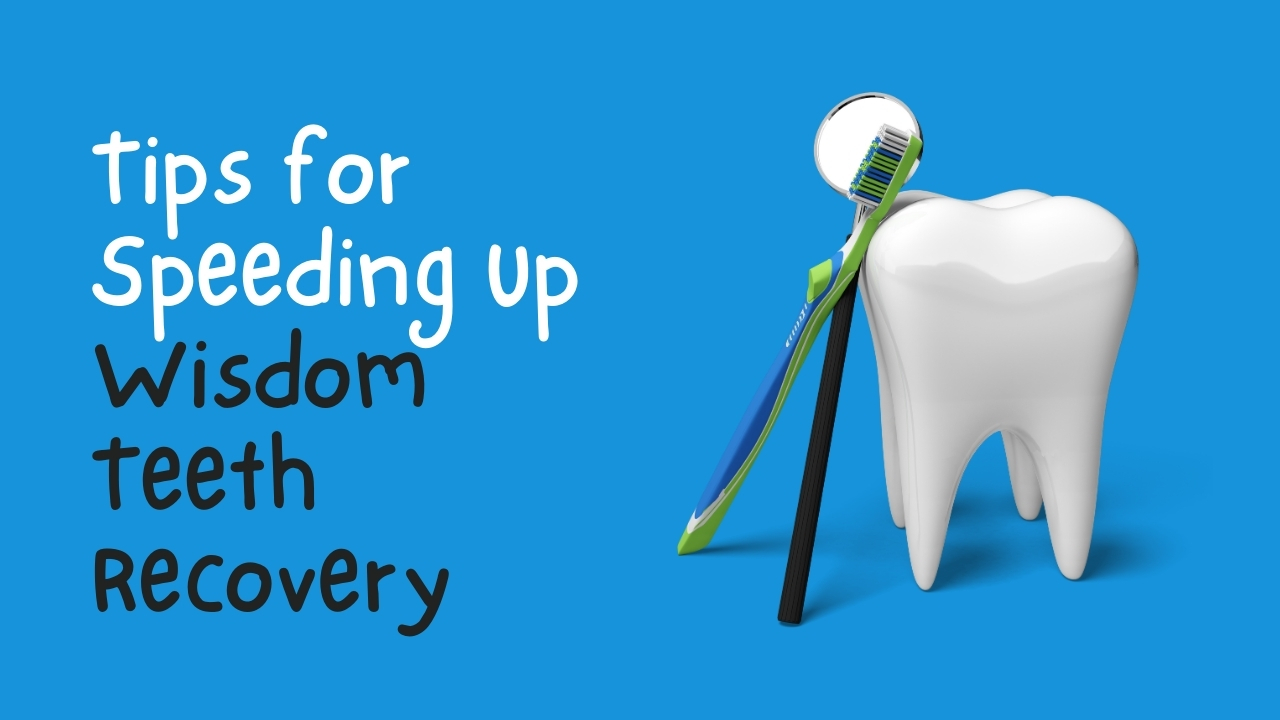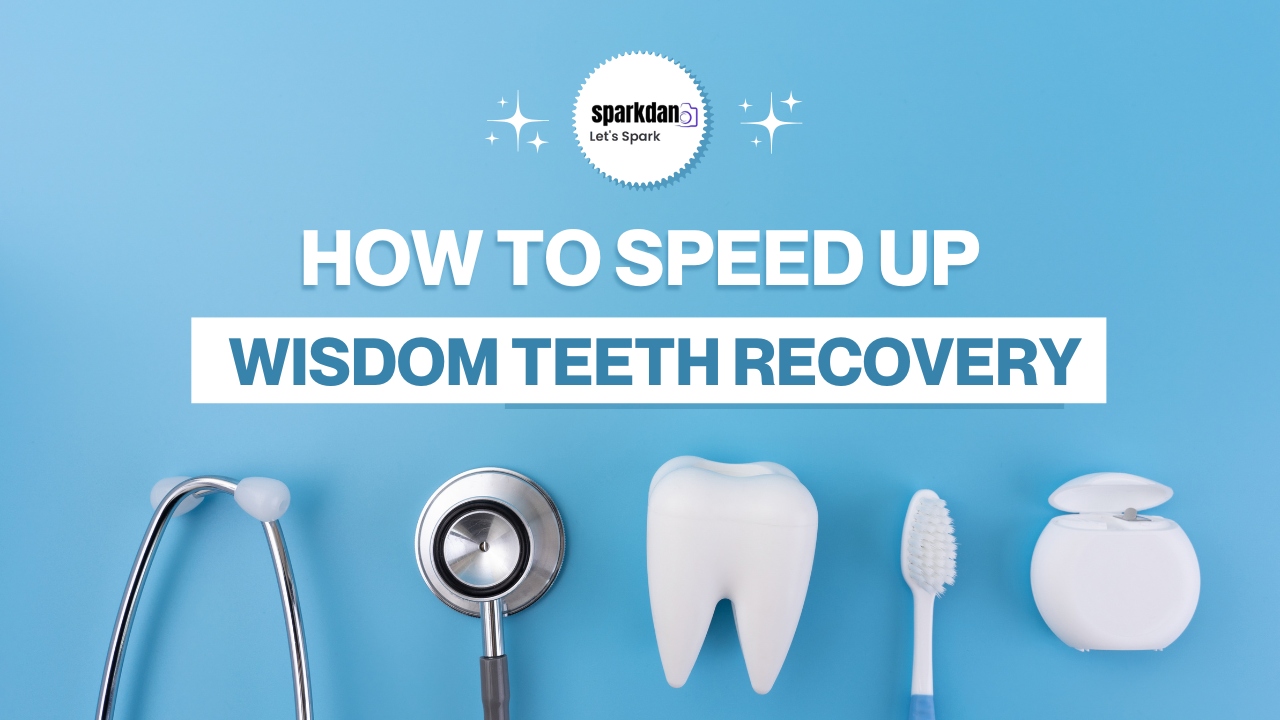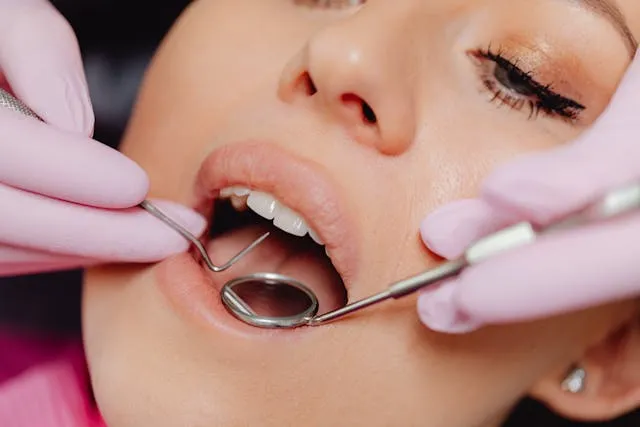Having your wisdom teeth removed is a common dental procedure, but it’s not always a pleasant experience. While the procedure itself may only take a short time, the recovery process can feel much longer. Understanding what to expect and how to care for yourself after the procedure can significantly impact how quickly and comfortably you heal. In this article, we’ll discuss everything you need to know about wisdom teeth recovery, including tips to speed up the healing process, potential complications to watch out for, and how to ensure your recovery is as smooth as possible.
What Are Wisdom Teeth?
Wisdom teeth are the third and final set of molars located at the back of the mouth. These teeth typically emerge between the ages of 17 and 25, but for some people, they may come in much later. For some, wisdom teeth grow in without issue, but for many, they can cause significant problems, leading to pain, infection, or other dental issues.
The primary reasons wisdom teeth may need to be removed include:
- Impaction: If there is not enough room in the mouth for the wisdom teeth to emerge fully, they can become impacted. This means the teeth may only partially emerge or stay trapped beneath the gums, causing discomfort and potential infection.
- Infection: Wisdom teeth can sometimes be difficult to clean properly, leading to infections or abscesses.
- Crowding: If there isn’t enough space in the mouth, wisdom teeth can crowd other teeth, leading to misalignment and bite issues.
- Cysts and Tumors: In rare cases, cysts or tumors can form around the wisdom teeth, causing further complications.
While some people can live with their wisdom teeth without any problems, others require removal to avoid these and other issues. After the removal procedure, proper wisdom teeth recovery becomes essential for your long-term oral health.
Why Is Wisdom Teeth Recovery Important?
The recovery period following wisdom teeth removal is a crucial part of ensuring the success of the procedure. After surgery, your body needs time to heal, and how you take care of yourself during this time can have a big impact on the outcome.
Wisdom teeth recovery is vital to prevent complications like infection, dry sockets, and prolonged pain. By following your dentist’s instructions and taking proper care of yourself, you can avoid these risks and recover much faster.
How Long Does Wisdom Teeth Recovery Take?
Recovery times vary, but generally, you can expect the following timelines:
- First 24-48 Hours: This period is typically the most difficult. You will experience the most pain, swelling, and bleeding during this time. Following your dentist’s aftercare instructions is critical in this phase.
- Days 3-7: Most of the swelling and discomfort should start to subside during this period. By the end of the first week, the pain should be manageable, and your gums will begin to heal.
- Week 2: By this time, you should feel much better. Any remaining swelling should be reduced, and the majority of your healing will be complete.
- Weeks 3-6: Full recovery, including the healing of the tissues and bone, can take a few weeks. For some individuals, it may take up to six weeks for complete healing, though most people return to their normal activities after two weeks.
The length of wisdom teeth recovery depends on several factors, including the complexity of the extraction, whether the teeth were impacted, and your overall health.
Tips for Speeding Up Wisdom Teeth Recovery
While there’s no way to avoid the natural healing process, there are several steps you can take to speed up your wisdom teeth recovery and ensure that it’s as comfortable as possible.

1. Follow Your Dentist’s Post-Surgery Instructions
The first and most important tip is to follow the specific aftercare instructions provided by your dentist or oral surgeon. These instructions are tailored to your surgery and your unique situation, ensuring the best possible outcome. Your dentist will likely recommend pain medications, anti-inflammatory drugs, and guidance on how to manage swelling and bleeding.
Follow these instructions carefully to avoid complications and promote faster healing. If you experience any unusual symptoms or side effects, don’t hesitate to contact your dentist for advice.
2. Apply Ice to Reduce Swelling
Swelling is a natural response to surgery, but it can make your recovery feel much worse. Using ice packs can help reduce this swelling and make you more comfortable during the first few days after surgery. Apply an ice pack wrapped in a cloth to your cheek for 15-minute intervals, allowing for breaks in between.
Swelling typically peaks within the first 48 hours after surgery. Applying ice during this time can make a significant difference in reducing discomfort and promoting a faster recovery.
3. Take Pain Medications as Prescribed
Your oral surgeon may prescribe painkillers to manage your discomfort. Take your pain medications as directed, even if you don’t feel much pain. This is especially important during the first few days of recovery, as staying ahead of the pain can help you manage it better.
Over-the-counter medications like ibuprofen or acetaminophen can also help reduce pain and inflammation, but always check with your dentist before taking any medications.
4. Eat Soft Foods
For the first few days after your surgery, you’ll need to stick to soft foods that won’t irritate your healing gums. Eat foods like mashed potatoes, yogurt, soups, smoothies, and scrambled eggs. Avoid hard, crunchy, or chewy foods like nuts, popcorn, or raw vegetables, which can hurt the extraction sites.
Additionally, make sure the food you’re eating isn’t too hot, as this can cause irritation to the surgical area. Stay away from spicy foods as well, as they may cause discomfort.
5. Keep Your Mouth Clean
After surgery, it’s essential to keep your mouth clean to avoid infections. However, be gentle when brushing and flossing around the extraction sites, especially during the first few days. Don’t brush directly over the surgical area, but make sure to clean the rest of your teeth and gums.
After meals, rinse your mouth gently with warm saltwater to help prevent infection. Avoid using mouthwash with alcohol, as it can irritate the healing gums.
6. Rest and Avoid Physical Exertion
During your wisdom teeth recovery, it’s important to rest as much as possible. This is the time your body needs to heal, and overexerting yourself can lead to complications. Avoid any strenuous activities like heavy lifting, exercising, or playing contact sports during the first week of recovery.
Even after a few days, you should avoid activities that may cause excessive blood flow to your head, such as bending over or lifting heavy objects.
7. Stay Hydrated and Avoid Straws
Drinking plenty of water is essential to help your body recover. However, be sure to avoid using straws for the first few days, as the suction can dislodge the blood clot in the extraction site and lead to a painful condition called dry socket. This can significantly slow down the healing process.
Instead, sip water slowly from a glass to stay hydrated and promote faster healing.
8. Avoid Smoking and Alcohol
Smoking and alcohol can significantly hinder your healing process after surgery. Both increase the risk of developing dry socket and infection. It’s best to avoid smoking for at least 72 hours after surgery, and it’s recommended that you abstain from alcohol until you’re fully healed.
9. Elevate Your Head While Sleeping
Keeping your head elevated while you sleep helps to reduce swelling and can also make you feel more comfortable. Use extra pillows or sleep in a recliner to keep your head at an elevated angle. This will help reduce blood flow to the area and prevent swelling from getting worse.
10. Use Warm Compresses for Pain Relief
After the first 48 hours, you can start using warm compresses to help soothe any lingering discomfort. This can be particularly helpful in reducing muscle stiffness and improving circulation around the surgical area. Apply a warm compress to the affected area for 20 minutes, several times a day.
Read More About: EzClasswork
Potential Complications During Wisdom Teeth Recovery
While most people experience a smooth recovery, some may face complications that slow down healing. It’s important to watch for these signs so you can address them early with the help of your dentist:
Dry Socket
Dry socket is a condition that occurs when the blood clot in the socket where your tooth was removed becomes dislodged or dissolves. This leaves the bone exposed and can lead to severe pain. If you experience a significant increase in pain several days after your surgery, especially with a bad taste or smell, it may be a sign of dry socket.
Infection
Infection is always a risk after any surgical procedure. Symptoms of an infection include fever, excessive swelling, and pus at the site of the extraction. If you suspect an infection, contact your dentist immediately for treatment.
Prolonged Bleeding
A small amount of bleeding is normal after surgery, but if bleeding continues beyond 24 hours or becomes heavy, it’s important to reach out to your oral surgeon. They may need to check for any complications or prescribe additional treatment.
Nerve Damage
Though rare, nerve damage can occur during wisdom teeth removal, particularly if the tooth is close to nerves. Symptoms like tingling, numbness, or a “pins and needles” feeling in your lip, tongue, or chin should be reported to your dentist right away.
FAQs about Wisdom Teeth Recovery
How long does it take to recover from wisdom teeth removal?
Recovery time varies, but most people experience full healing within 1-2 weeks. However, for complete recovery, it may take up to six weeks.
Can I drink coffee after wisdom teeth removal?
It’s best to avoid hot drinks like coffee for the first few days after surgery, as they can irritate the extraction sites and increase swelling. Stick to cool or lukewarm beverages.
Is it normal to have swelling after wisdom teeth removal?
Yes, swelling is common after wisdom teeth removal. It usually peaks within 48 hours and should start to decrease after that.
When can I return to work or school?
Most people can return to work or school within 3-5 days after surgery, depending on how quickly they heal. If your job or school involves physical activity, it may be best to wait until you feel more comfortable.
How can I prevent dry socket during recovery?
To prevent dry socket, avoid smoking, using straws, and excessive rinsing. Follow your dentist’s instructions carefully, and if you experience any signs of dry socket, contact your dentist immediately.
Click and Read About: Amp Fitness
Conclusion
Wisdom teeth recovery can take time, but with the right care, you can speed up the healing process and minimize discomfort. By following your dentist’s aftercare instructions, keeping the extraction sites clean, eating soft foods, and avoiding activities that could interfere with healing, you can ensure that your recovery goes smoothly.
Remember, patience is key during this time. While your body heals, taking care of yourself will help you return to your normal activities quickly and comfortably. Keep an eye out for any signs of complications and reach out to your dentist or oral surgeon if you have any concerns. With proper care, you’ll be back to smiling and eating comfortably in no time!



